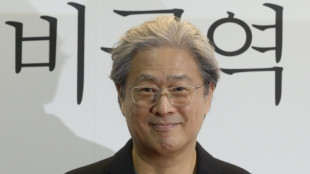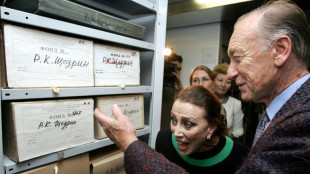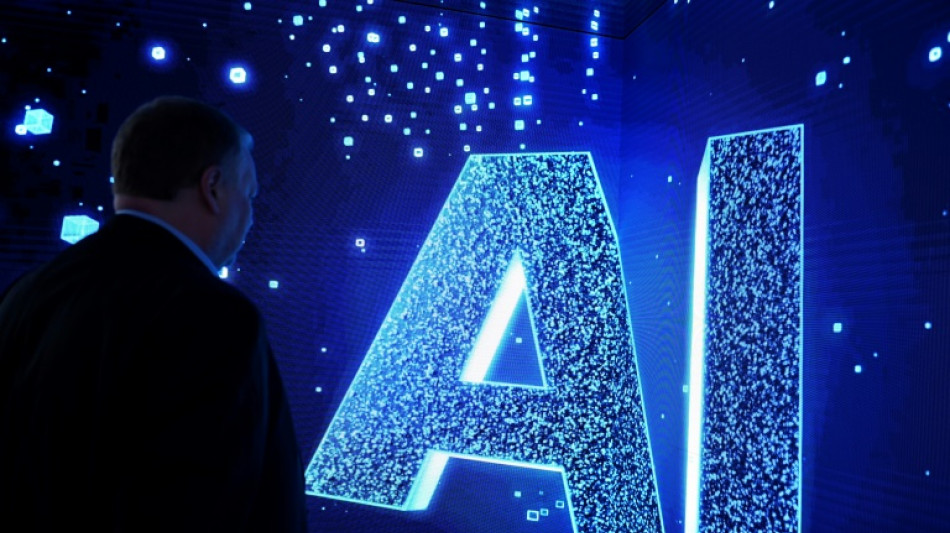
-
 Leading political figure shot dead in Ukraine
Leading political figure shot dead in Ukraine
-
Seymour Hersh makes reluctant subject of new documentary
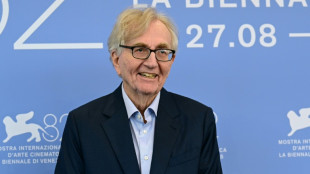
-
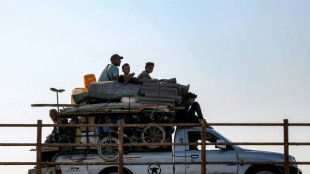 Red Cross warns against evacuation of Gaza City as Israel tightens siege
Red Cross warns against evacuation of Gaza City as Israel tightens siege
-
Flick hopeful Barca's Lopez will stay amid Chelsea links

-
 Isak edges closer to Liverpool move after Newcastle sign Woltemade
Isak edges closer to Liverpool move after Newcastle sign Woltemade
-
Russia strikes across Ukraine as peace prospects flounder

-
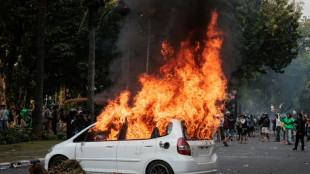 Five things to know about Indonesia's deadly protests
Five things to know about Indonesia's deadly protests
-
McLaren dominate final practice at Dutch GP
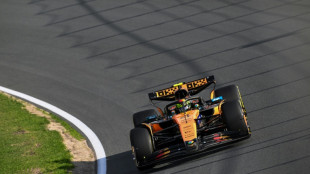
-
 Pakistan evacuates half a million people stranded by floods
Pakistan evacuates half a million people stranded by floods
-
China's Xi welcomes leaders in Tianjin ahead of summit
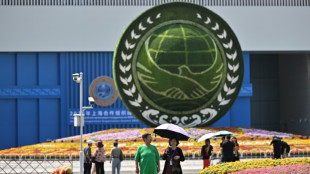
-
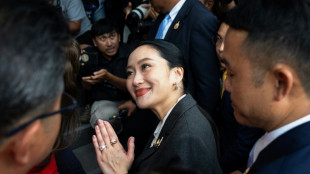 Thailand power vacuum will 'not affect' border security: defence ministry
Thailand power vacuum will 'not affect' border security: defence ministry
-
Istanbul's ferries, a beloved link between two continents

-
 Exhausted Scottish brothers back on shore after record Pacific row
Exhausted Scottish brothers back on shore after record Pacific row
-
Indonesia protest blaze kills three as anger erupts over driver death
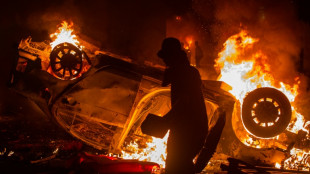
-
 US warship enters Panama Canal, heading toward Caribbean
US warship enters Panama Canal, heading toward Caribbean
-
Bradman 'baggy green' cap won during 1946-47 Ashes sells for $287,000
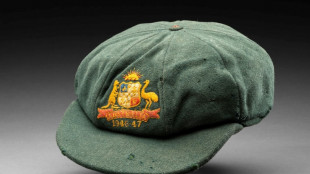
-
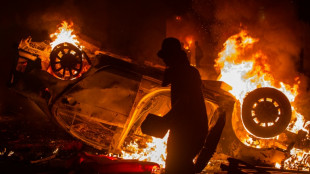 Indonesia protest blaze kills 3 as anger erupts over driver death
Indonesia protest blaze kills 3 as anger erupts over driver death
-
Alcaraz, Djokovic into US Open last 16 as Sabalenka avenges defeat
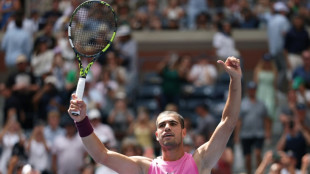
-
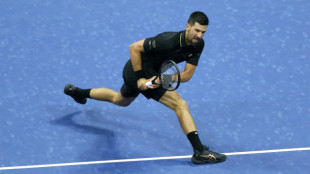 Djokovic overcomes Norrie to make US Open last 16
Djokovic overcomes Norrie to make US Open last 16
-
Morocco seek record third CHAN title against Madagascar

-
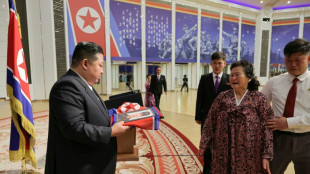 North Korea's Kim consoles families of troops killed fighting for Russia: KCNA
North Korea's Kim consoles families of troops killed fighting for Russia: KCNA
-
Bolsonaro coup trial enters final phase as ally Trump watches
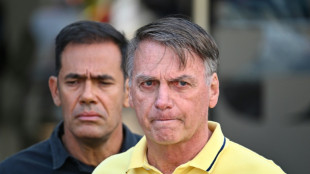
-
 Sabalenka extends tie-break streak, downs Fernandez
Sabalenka extends tie-break streak, downs Fernandez
-
Chinese rookie Wang grabs LPGA lead at storm-hit TPC Boston

-
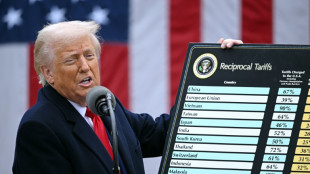 US appeals court finds Trump's global tariffs illegal
US appeals court finds Trump's global tariffs illegal
-
Sounders out to 'prove a point' against Messi's Inter in Leagues Cup final

-
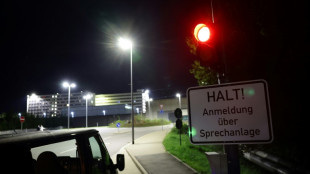 'Trans' neo-Nazi shakes up gender debate in Germany
'Trans' neo-Nazi shakes up gender debate in Germany
-
Tiafoe bounced out in US Open third round
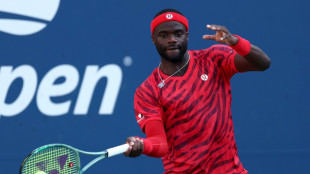
-
 Argentina police carry out raids in
Milei sister graft probe
Argentina police carry out raids in
Milei sister graft probe
-
Maresca won't ban Chelsea players from social media

-
 US Spirit Airlines files for bankruptcy again
US Spirit Airlines files for bankruptcy again
-
Amorim expects to stay at Man Utd as pressure mounts

-
 Alcaraz romps into US Open fourth round, injured Shelton exits
Alcaraz romps into US Open fourth round, injured Shelton exits
-
Mussolini's great grandson hails winning Serie A debut with table-toppers Cremonese

-
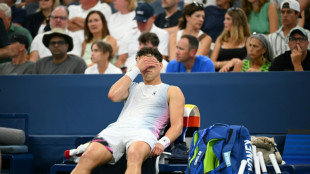 Shelton quits US Open with shoulder injury
Shelton quits US Open with shoulder injury
-
In whirlwind tour, Qatari royal commits $70bn to southern Africa
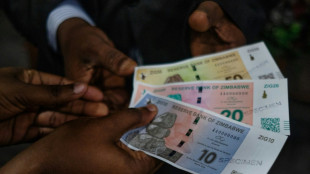
-
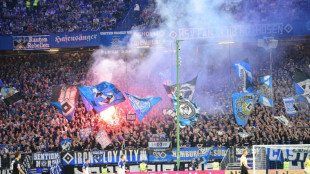 St Pauli upstage Hamburg in derby return
St Pauli upstage Hamburg in derby return
-
Trump moves to cut more foreign aid, risking shutdown
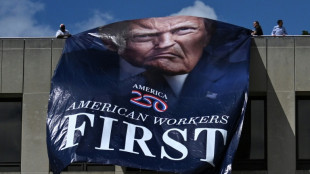
-
 Hearing ends without ruling on Trump attempt to oust Fed Governor Cook
Hearing ends without ruling on Trump attempt to oust Fed Governor Cook
-
Europeans tell Iran offer on table to avoid sanctions

-
 FA Cup-holders Palace sign Spain winger Pino
FA Cup-holders Palace sign Spain winger Pino
-
Alcaraz romps into US Open fourth round, Rybakina advances

-
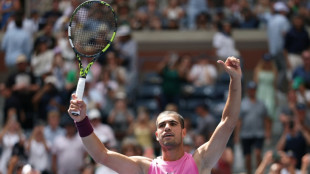 Alcaraz mows down Darderi to reach US Open last 16
Alcaraz mows down Darderi to reach US Open last 16
-
Court battle underway as Fed Governor Cook contests firing by Trump

-
 Schwarber hits historic four homers but misses rare shot at five
Schwarber hits historic four homers but misses rare shot at five
-
Injury doubt Tonali picked by Gattuso for Italy's World Cup qualifiers

-
 Spurs sign Dutch midfielder Simons in boost for new boss Frank
Spurs sign Dutch midfielder Simons in boost for new boss Frank
-
Rybakina routs Raducanu to advance at US Open

-
 US banana giant Chiquita returns to Panama
US banana giant Chiquita returns to Panama
-
Martin says Rangers remain supportive despite woeful start


Chips industry goes all-in on AI
It's been a wild few years for the microchip industry, recovering from a long-term supply squeeze only to be thrust into the centre of a US-China battle to control supply lines of the valuable technology.
But an industry long associated with volatility is quietly getting excited that artificial intelligence (AI) could be the key to some longer-term stability.
US firm Nvidia dominates the market in specialised chips known as GPUs, which happen to be ideal for training AI programmes like the wildly popular chatbot ChatGPT.
"Technology trends are working in Nvidia's direction," the firm's vice president Ronnie Vasishta told AFP this week at the Mobile World Congress (MWC) in Barcelona.
This has helped make Nvidia the biggest company in the sector -- and one of the biggest firms of any kind in the United States -- with a valuation of $580 billion.
Traditional rivals like Intel and Qualcomm are now on manoeuvres, desperate to make sure they do not miss out.
The tiny components, also known as semiconductors, are essential in everything from smartphones, PCs and electric cars to sophisticated weaponry, robotics and all other high-tech machinery.
AI already features heavily in all of these fields, and the advent of chatbots is only pushing it further into the public imagination.
Even in a sector where low-key engineers do the talking, the enthusiasm is palpable.
- 'Scratching the surface' -
"The most exciting thing right now is AI," Cristiano Amon, boss of rival firm Qualcomm, told a Wall Street Journal event at the MWC.
He wants the world's phones to be tooled up with chips able to handle even the most tricky AI-related tasks, largely because Qualcomm leads the field in phone chips.
Vasishta is equally enthused.
"Where and how does AI get used? It's probably going to be easier to answer where is it not getting used," he said.
Another chip firm, the British-based Arm, is even further back in the production chain than Nvidia -- it provides the designs used by chip suppliers.
The firm's Chris Bergey told AFP there was massive potential with AI.
The kind of chips Nvidia produces are great for training AI models in data centres, he said, but smartphones need chips that can act based on those models.
"It's a huge opportunity and it's ubiquitous," he said.
He compares the AI revolution to the onset of apps, which appeared about 15 years ago and rapidly changed the way we used technology.
"Definitely AI is something that has a lot of interesting applications and we're still scratching the surface of where we'll go."
- 'Too cool' -
Yet, with chips, nothing is straightforward.
The supply chain is fiendishly complex -- consulting firm Accenture reckons a chip crosses borders 70 times before it ends up in a phone, camera or car.
Countries like China and the United States would prefer to have greater control.
And there is an added problem: the factories that make most of the world's chips are in Taiwan, a self-ruled island that China claims.
This could bring China and the United States into direct conflict.
Mild-mannered as ever, semiconductor executives will not be drawn into discussions on these issues.
"We don't have really a position on the geopolitics, we comply with all the US regulations that are required as a US company," said Vasishta.
Bergey, who has spent 25 years in the industry, said he had seen chips lurch from being "very cool" to "very boring".
"They're cool right now, perhaps too cool with too much attention," he said.
"It's a dynamic thing the industry is dealing with and we'll have to see how these things play out."
P.Anderson--BTB



